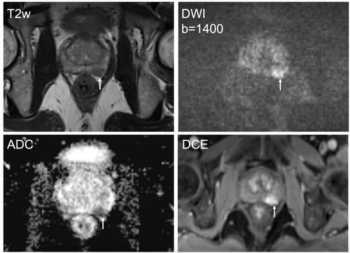
A model that combines multiparametric MRI findings with clinical factors may enhance the accuracy of predicting clinically significant prostate cancer and significantly reduce unnecessary systematic prostate biopsies in biopsy-naïve patients.
Senior Editor, Diagnostic Imaging

A model that combines multiparametric MRI findings with clinical factors may enhance the accuracy of predicting clinically significant prostate cancer and significantly reduce unnecessary systematic prostate biopsies in biopsy-naïve patients.
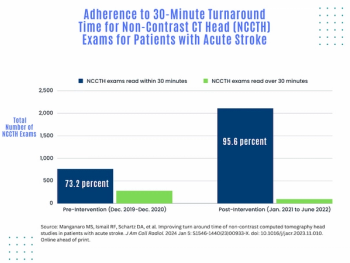
Modifications to the radiology workflow, including the use of a structured report template, improved adherence for 30-minute turnaround times for acute stroke head CT results from 73.2 percent to 95.6 percent, accordingly to new research.
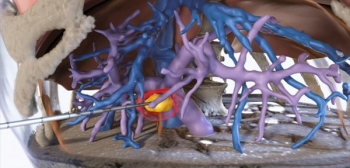
The BioTraceIO software reportedly facilitates visualization of liver tumor ablation procedures based on real-time ultrasound imaging and provides superior post-op estimates of ablation zone volume in comparison to computed tomography.
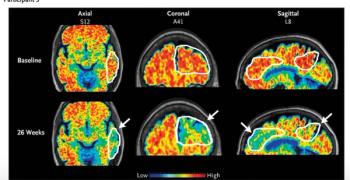
In a recent proof-of-concept trial assessing the combination of aducanumab infusion with MRI-guided focused ultrasound to open the blood-brain barrier, researchers found significant reductions in amyloid-beta load at 26 weeks in patients with Alzheimer’s disease.
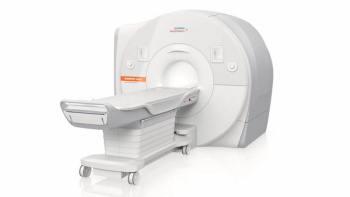
At an amplitude of 200 mT/m and a slew rate of 200 T/m/s, the gradients for the FDA-cleared MAGNETOM Cima.X are reportedly the strongest for currently available whole-body MRI scanners.
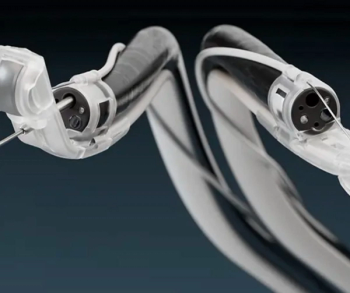
The EndoSound Vision System reportedly enables providers to convert existing upper gastrointestinal endoscopes into endoscopic ultrasound modalities.
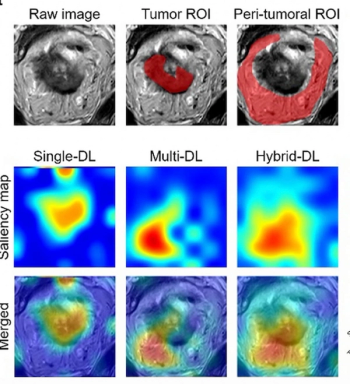
An emerging deep learning model, which incorporates T2-weighted MRI and clinical data, demonstrated an 83.9 percent AUC and an 85 percent specificity rate for preoperative prediction of tumor deposits in patients with rectal cancer.
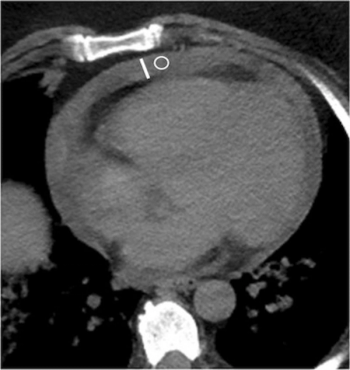
The presence of pericardial effusion on chest computed tomography (CT) was associated with a 56 percent higher 30-day mortality risk in men with COVID-19 but had no impact on the prognosis for women with COVID-19, according to newly published research.
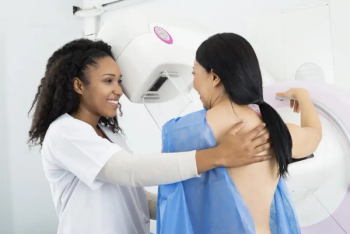
In a study assessing the use of a genetic risk stratification model to estimate breast cancer risk in over 25,000 women, researchers found that 0.69 percent of women at low genetic risk were diagnosed with breast cancer by the age of 45 and 1.41 percent of this group were diagnosed by the age of 58.

New research shows that higher total lesion volume in the brain for former football players is directly associated with higher vascular risks and changes in white matter hyperintensity-associated biomarkers of Alzheimer’s disease.
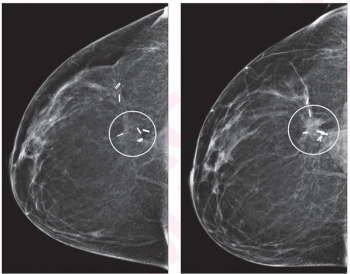
In a study of over 30,000 screening digital breast tomosynthesis (DBT) exams for over 8,000 women, researchers found a specificity rate of 95.1 percent, a false negative rate of 2.1 (per 1,000 exams) and an abnormal interpretation rate (AIR) of 5.7 percent.
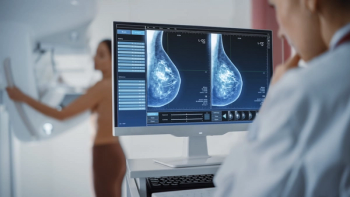
In a study examining the potential of the large language models ChatGPT-4 and Bard to follow ACR Appropriateness Criteria for breast cancer, lung cancer, ovarian cancer and colorectal cancer screening, researchers noted “impressive accuracy in making radiologic clinical decisions.”
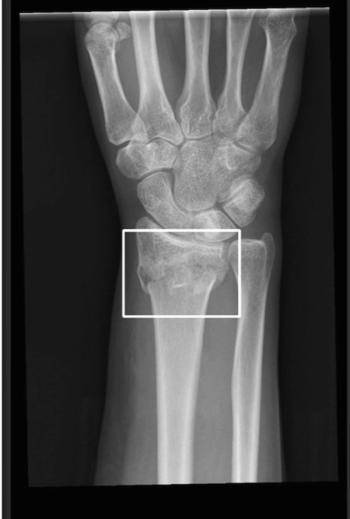
In addition to offering a 98.5 percent sensitivity rate in diagnosing fractures on X-ray, an emerging artificial intelligence (AI) software reportedly helped reduce mean turnaround time on X-ray fracture diagnosis from 48 hours to 8.3 hours, according to new research presented at the Radiological Society of North America (RSNA) conference.
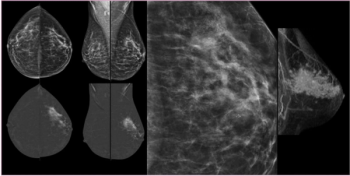
Contrast-enhanced mammography had a 98 percent sensitivity rate for diagnosing invasive lobular carcinoma and provided high conspicuity for 82 percent of detected lesions, according to research presented at the recent Radiological Society of North America (RSNA) conference.
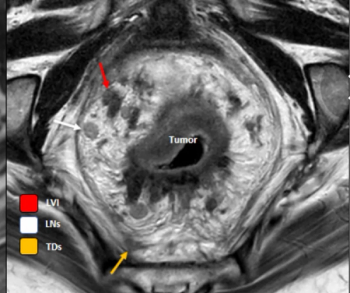
In one of the study periods from recently published research on rectal MRI acquisition, researchers found that 39.7 percent of rectal MRI exams adhered to guidelines from the Society of Abdominal Radiology (SAR) and only 6.8 percent followed guidelines from the European Society of Gastrointestinal and Abdominal Radiology (ESGAR).

In a recent interview, Alexander Rau, M.D., discussed emerging research, presented at the recent RSNA conference, that shows the capability of diffusion microstructural imaging to differentiate subtle shifts in microstructural gray matter associated with common symptomatology of long Covid.
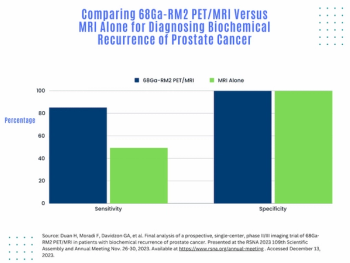
The use of 68Ga-RM2 PET/MRI demonstrated a 35 percent higher sensitivity rate than MRI alone for the diagnosis of biochemical recurrence of prostate cancer, according to research recently presented at the Radiological Society of North America (RSNA) conference.

Emerging research suggests that adjunctive artificial intelligence (AI) improves sensitivity for a variety of abnormalities on chest X-rays regardless of radiologist experience level, including an average 26 percent increase in sensitivity for pneumothorax.
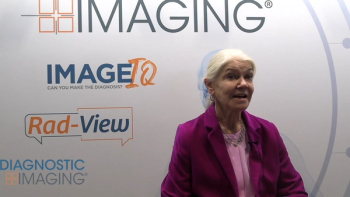
In an interview at the recent RSNA conference, Catherine Everett, M.D., shared her perspective on the radiology workforce shortage, offered insights on recruiting radiologists to rural areas and emphasized the urgency of bolstering access to radiologists and other health-care professionals for at-risk communities.
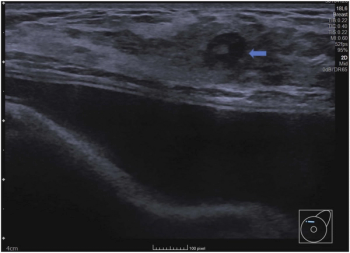
Emerging research suggests that stand-alone artificial intelligence (AI) assessment of breast ultrasound exams could eliminate over 45 percent of unnecessary follow-up exams.
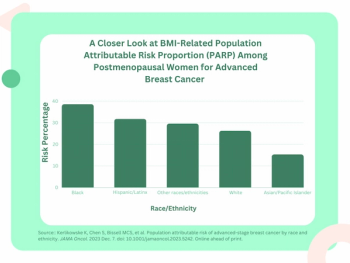
In a new study examining population attributable risk proportions (PARPs) based on data from over three million screening mammography exams, researchers found that postmenopausal Black women had the highest BMI-related PARP and premenopausal Asian and Pacific Islander women had the highest breast density-related PARP for advanced breast cancer.
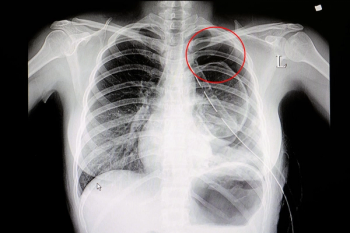
BraveCX, an artificial intelligence (AI)-enabled software, reportedly has an area under the curve (AUC) of 98 percent for detecting pneumothorax on chest X-rays.
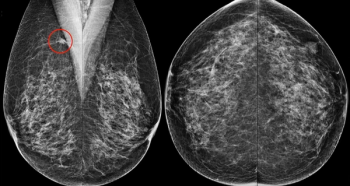
Contrast-enhanced mammography detected additional lesions in 43 percent of patients and led to additional biopsies in 18.2 percent of patients, over half of whom had malignant lesions, according to a study of over 500 women presented at the recent Radiological Society of North America (RSNA) conference.
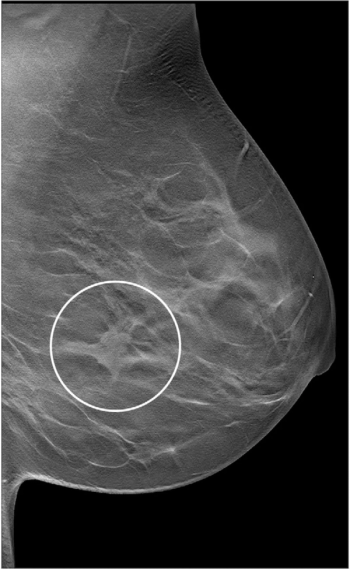
The combination of digital breast tomosynthesis (DBT) and digital mammography had a 21.6 higher invasive breast cancer detection rate for stage 1 tumors than digital mammography alone, according to a new study involving nearly 100,000 women.

In a recent interview, Mahsa Dolatshahi, M.D., M.P.H., and Cyrus A. Raji, M.D., Ph.D., discussed MRI and PET study findings, presented at the Radiological Society of North America (RSNA) conference, that showed an association between higher amyloid PET tracer uptake in the precuneus cortex and a higher visceral to subcutaneous fat ratio.
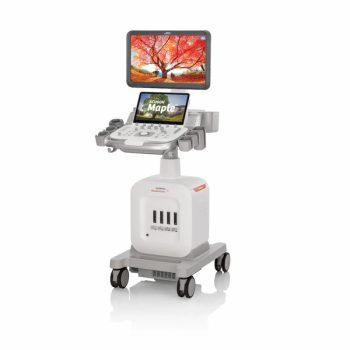
Providing 25 features to facilitate optimal workflow and user effectiveness, the portable Acuson Maple ultrasound can reportedly be utilized in a variety of clinical settings.
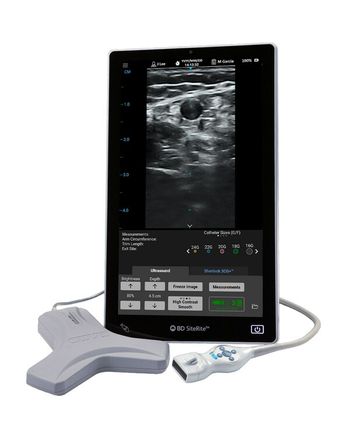
Offering a variety of integrated visualization tools, the SiteRite 9 Ultrasound System reportedly enables the insertion of vascular access devices regardless of user experience level.
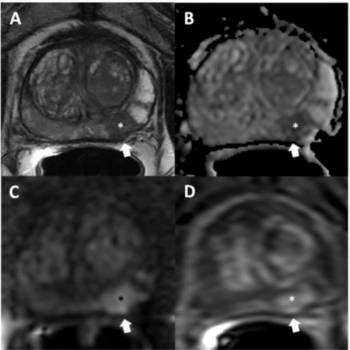
Utilizing a deep learning-based AI algorithm to differentiate between diagnostic and non-diagnostic quality of prostate MRI facilitated a 10 percent higher specificity rate for diagnosing extraprostatic extension on multiparametric MRI, according to research presented at the recent RSNA conference.
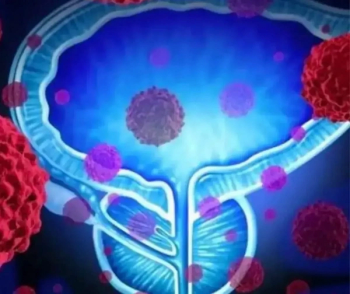
In a newly published meta-analysis of 24 studies, researchers noted that the PSMA PET radiotracer 18F PSMA-1007 may provide more benefit than 68Ga Ga-PSMA-11 for primary staging of patients with prostate cancer and detection of local lesion recurrence, but also has drawbacks with higher liver uptake and multiple reports of false positive bone lesions.
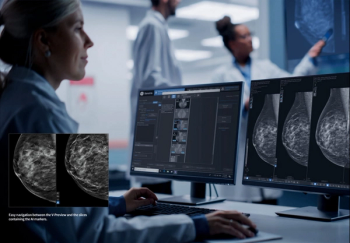
Offering an all-in-one platform of artificial intelligence (AI) applications, MyBreastAI Suite reportedly facilitates early breast cancer detection and enhances efficiency with breast imaging workflows.